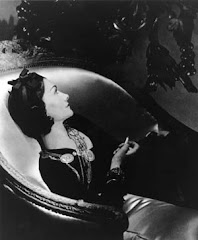Further to yesterday's post about Zara, there's another piece on its reclusive founder, Amancio Ortega Gaona. It's worth reading it all. Zara spends almost nothing on advertising, which itself keeps costs down. There is no 'face of'' Zara. As I said yesterday, I think its design is amazing, but the quality control is dire:
The 72-year-old son of a railway worker is now, according to Forbes, the seventh richest man in the world. He is astonishingly reclusive - only one known photo of him is in existence. He is thought to be deeply involved in all areas of the business, including design, but little is certain. Zara was one of the first to bulk-buy Chinese fabrics at a time when rivals dismissed them as of low quality. Zara legend has it that Ortega himself felt the cloth and made the decision, but as he has never given an interview we can't be sure.
He opened his first store in Galicia in 1975 and expanded slowly across Spain. In 1984, he met computer whizz Jose Castellano, who developed a production and distribution system that allowed clothing to go from drawing board to shop floor in as little as 10 days. Zara recruited a team of young designers - 200 at the last count - who created clothes inspired by the catwalk as well as adding their own ideas.
"So-called 'fast fashion' is now common in the high street," says Maureen Hinton, lead retail analyst at Verdict Research. "But before Zara arrived in the UK in 1999, all retailers offered three or four seasons. Zara introduces new stock every week, which caught our stores on the hop.""Zara has absolute control of the design, manufacturing and distribution process," explains Robert Clark, senior analyst at Retail Knowledge Bank. "Fifty per cent of its product is made in Spain, 26 per cent in the rest of Europe, and 24 per cent elsewhere. With others, 50 per cent or more is made in Asia. Fast-fashion items, roughly half its sales, are made in company-owned factories in Galicia. It's the basic T-shirt staples that are outsourced."
Although Zara owns its factories in order to speed up the process, this has also allowed it to dodge many of the sweatshop accusations that hound the likes of Primark - although in June it closed a textile supplier's factory in Dhaka over poor conditions, insisting that the factory introduce unions if it wanted to remain a Zara supplier.

2 comments:
Gaona. Hmm...
Zara has a US location in Natick, MA, and I was pretty underwhelmed this weekend when I checked it out. Maybe its not an "A" store.
Post a Comment